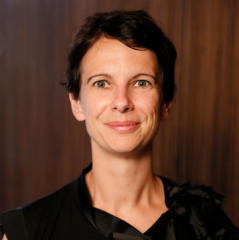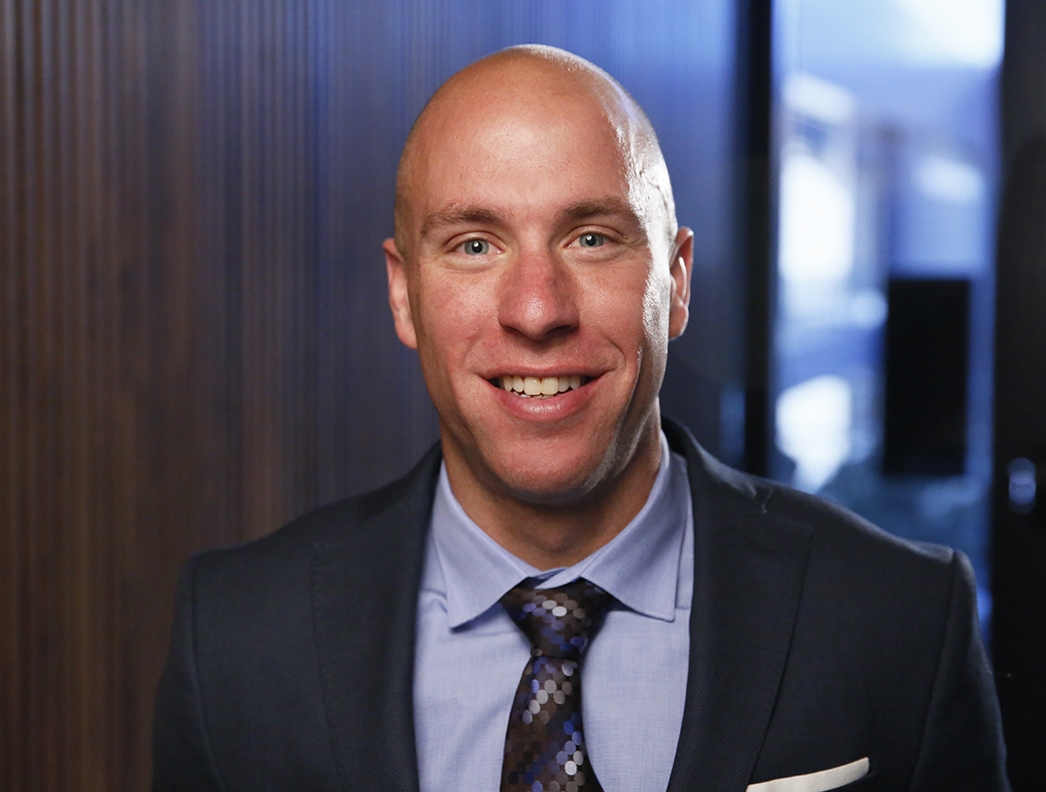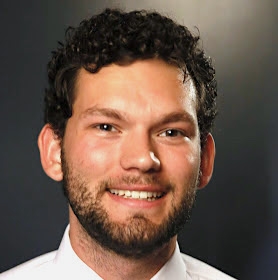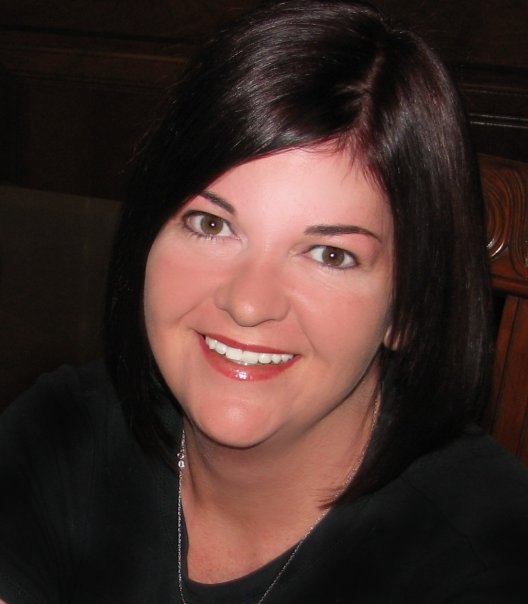ASU Law students gain paid summer employment, invaluable career experience through innovative Smart State initiative

ASU Law students had the opportunity to work on a special Smart City/Smart Regions program over the summer, gaining insight to take them into future careers.
When summer employment opportunities were postponed or canceled for students of the Sandra Day O’Connor College of Law due to COVID-19, faculty quickly stepped in to provide unique, paid internships and externships. For Diana Bowman, ASU Law’s associate dean for international engagement and co-director for the Center for Smart Cities and Regions, that meant creating a real-world, practical experience for students to give them valuable, hands-on skills that they can carry forward into future careers.
Bowman is ASU’s lead on The Connective, a collaboration of ASU, the Maricopa Association of Governments, the Greater Phoenix Economic Council, the Institute for Digital Progress and the Partnership for Economic Innovation. Working with the Arizona Commerce Authority (ACA), The Connective and ASU, Bowman and the team developed an intensive program that ultimately brought onboard 14 students.
“When I think about smart cities — and this is how I framed it for our students on Day One — what we are trying to do is improve quality of life for those who live and work in those environments,” Bowman said. “And there really is no other university like ASU that is as focused on the smart city concept and creating an evidence-based, best practice on what smart cities and regions are. So we really are on the cutting edge.”
The summer program had two key focus areas — The Connective’s smart cities and region consortium, and the Arizona Commerce Authority, with students able to work collectively across both. Bowman said the team first focused on helping students feel comfortable with the subject matter, and then provided a road map for the state of Arizona’s vision for smart regions and a smart state to empower the students and give them a sense of purpose.
Diana Bowman, ASU Law’s associate dean for international engagement and co-director for the Center for Smart Cities and Regions.
Equally important was the opportunity for students to build out their professional networks. “Every Friday, we brought in experts from our partner organizations, including Amazon Web Services, Sprint, Dell and Snowflake, so that our students were able to hear and learn directly from professionals working in the local smart region arena,” Bowman said.
Arizona Commerce Authority’s Dominic Papa, vice president of Smart State Initiatives, said the students’ contributions were invaluable. Papa is also an ASU Law 2020 JD in this newly created ACA position that was an outgrowth of initiatives he worked on with Bowman while a student.
“To have some of the best and brightest young legal minds help us craft a strategy of what a smart state should look like — to bring their innovative ideas and kind of push us to think differently was a huge benefit,” Papa said. “What we’re really trying to do is disrupt government by thinking differently and solving complex challenges — so we need outside thinkers who haven’t had government experience to really challenge traditional thinking and get us outside of our bubble.”
Dominic Papa, Arizona Commerce Authority’s vice president of Smart State Initiatives and ASU Law 2020 JD.
ASU Law students’ legal and detailed research skills gained in the classroom gave the ACA and The Connective leaders a fresh way of thinking, Papa added. “What the students did extremely well was help us better understand complex issues like autonomous vehicles, drones and 5G technology through concise briefs that enabled us to make rapid decisions. We were better positioned to handle complex, difficult challenges very quickly,” he said.
Riggs Brown, in his final year at ASU Law, worked on regional procurement processes and a “regulatory sandbox” to demonstrate innovation in a controlled environment. He said the experience was a perfect match for his passion for intellectual property and innovation in the law.
“There are all these new things that are happening in the world, and I come from a business background and feel like the law hasn’t caught up,” Brown said. “So when I had this opportunity to see where cutting-edge innovation is happening, I leapt on it.”
ASU Law student Riggs Brown.
Brown spent the first four weeks on procurement. “So much of the smart city and smart region work is about the need for collaboration and to be on the same page. And in procurement, every city has a different process and needs — so we had to create a baseline. The recognition that we all come from different places and diverse backgrounds, and that innovation and growth will only happen when we all come to the table, was really engaging.”
For fellow ASU Law senior Lori Rutten, her focus was data governance, making it a very unique experience given that it was a completely new concept to her — something she hadn’t previously explored or taken an interest in. “I am very appreciative for Dr. Bowman and The Connective to take on a student like me who didn’t have any experience in that field of law … but they still brought me on, and rallied around me and were extremely supportive of my learning process.”
Like Brown, Rutten said the experience helped her to really understand how important it is for governments and private entities to work together to achieve a better city, state and country.
ASU Law student Lori Rutten
“If everyone could learn to work together we could achieve so much more,” she said. “I always knew that but this helped me see it in a different light. Through the project, I was able to learn a lot about the importance of data governance being implemented into the different municipalities, and it’s amazing what it can achieve … so much more than I ever could have imagined, because it can benefit everyone — government, private and public companies and residents.”
Brown added that the experience showed him how many other doors will open with this type of legal experience. “Working as part of The Connective gave me the opportunity to see the intersection of innovation, business, science and the law in a way that is happening right now. While a lot of other schools look at this as an area to write papers or think about in a hypothetical way, at ASU Law we were actually impacting decisions being made. Dr. Bowman encouraged us to be the drivers of our own experience … allowing us to build on the things we were curious about and build on the things we wanted to be better at too.”
Papa said the ACA is extremely grateful for ASU Law’s generous contributions that enabled the summer program. “As an economic development organization for the state — sitting at the intersection of industry, government and academia, and being able to partner with ASU and ASU Law — is tremendous,” Papa said. “We are working together to build the next generation of legal professionals in the workforce and looking forward to much more to come.”
Added Bowman, “The summer provided the students with a unique skill set that they can take into their future and that will give them an advantage over other students in the job market. When you can go into a job interview and talk about how you, as a law student, helped build out a smart region in Arizona — that is really tangible. And so I am very excited about how this will propel our students into whatever careers they choose.”
The students’ efforts will be part of this year’s Smart Cities/Region Summit, to be co-hosted by ASU Law, ASU’s University Technology Office, the Arizona Commerce Authority and The Connective. The students also will be participating in a data exchange workshop being hosted by the Amazon Web Services Cloud Innovation Center in September.
More Environment and sustainability
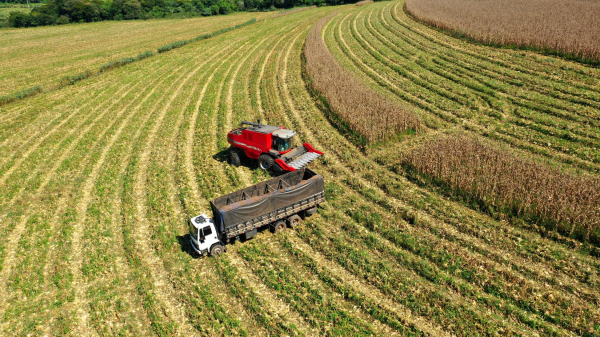
ASU scientist studies how bans, regulations on food technology affect consumer acceptance, perceptions
How do people process scientific developments with outside influences, warnings, biases and others’ opinions filtering in? That…

ASU team's research leads to new law protecting mobile-home dwellers
Arizona Gov. Katie Hobbs signed a law earlier this month that guarantees mobile-home owners’ right to install cooling measures,…
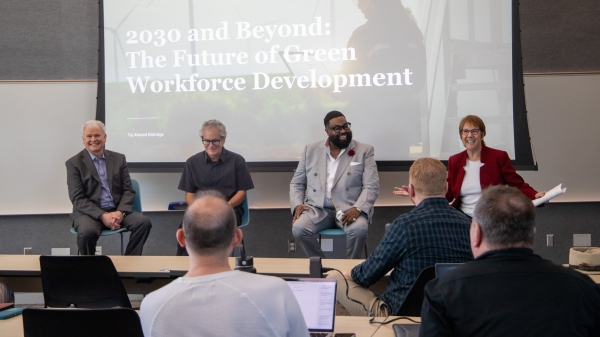
ASU event discusses hopeful future for a decarbonized economy
The economic landscape and jobs market are changing faster than ever, with cutting-edge technologies, workplace adaptations and…
